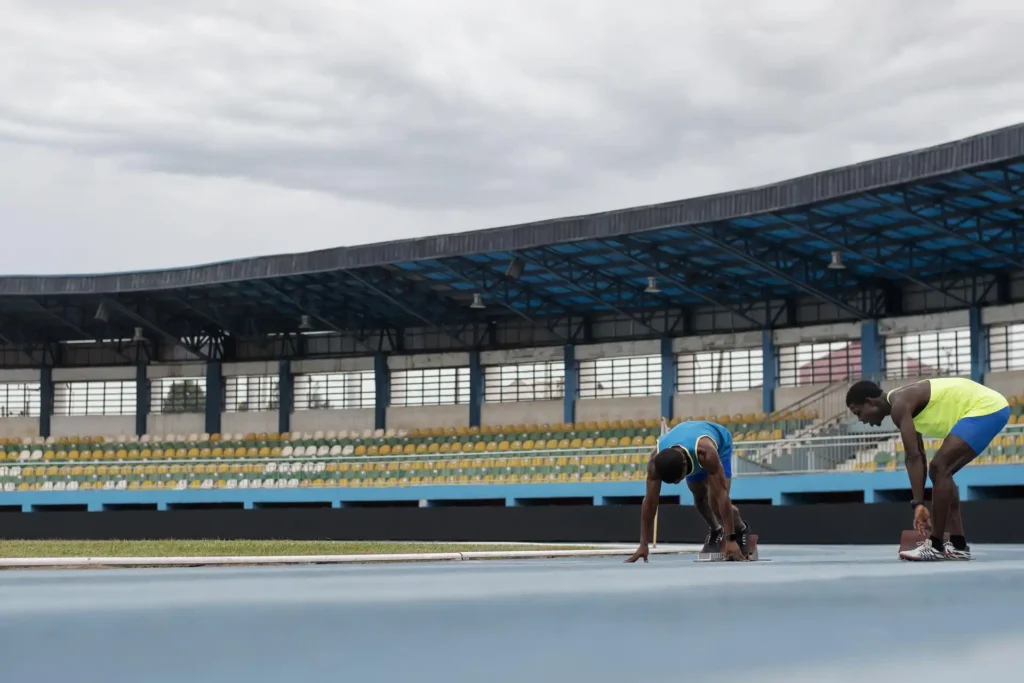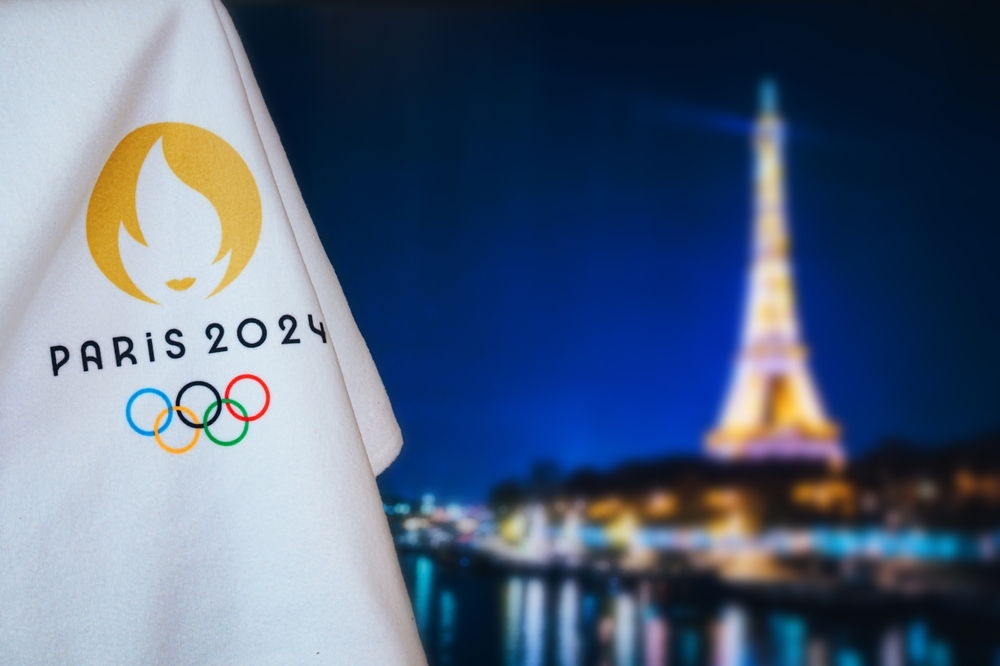
When Building Brands Enter the Arena
In 2025, cement, steel, insulation, and paint brands aren’t just powering skylines, they’re entering the global sports ecosystem with serious intent. Backed by a booming construction sector and rising demand for ESG alignment, these companies are using sports to speak the language of strength, durability, trust, and innovation, but in a way that sticks emotionally
This isn’t a media play. It’s a strategic shift.
The global construction industry is projected to reach $13.9 trillion by 2030, and sports sponsorship, valued at $91.8 billion this year, has become a powerful tool for these brands to align with values like performance, reliability, and innovation, not through ads, but through cultural association. This isn’t about awareness. It’s about owning a new space in the minds of decision-makers, city developers, and future-focused audiences, by showing up where emotion, influence, and ambition already exist in sport
Why Building Materials Brands Are Investing in Sports Sponsorship
In 2025, brands from the construction and infrastructure space , including cement, steel, insulation, and paint , are stepping into the world of sports sponsorship with clear purpose. It’s no longer just about visibility; it’s about building long-term trust, enhancing relevance, and standing out in a crowded industry.
1. Building Emotional Relevance
For years, these products have been seen as technical or low interest. But sports give them a new voice , associating them with values like strength, consistency, performance, and endurance. It’s a smarter, more human way to communicate what the brand truly stands for.
2. Revolut x FA Cup (UK)
Sports sponsorship offers direct access to the real decision-makers, builders, developers, contractors, architects, and urban planners. These are audiences traditional marketing often misses. Through matchday experiences, partner programs, and curated B2B content, brands can strengthen influence and relationships where it matters most.
B2B Influence Report (2025), sports-led campaigns increased trade engagement by 54% in industrial categories like construction and real estate
3. Improving Brand Recall Through Association
Unlike fast-moving consumer goods, building materials need consistent recall over time. Sponsoring high-trust events like the Olympics, IPL, or Formula E helps these brands stay top-of-mind, not through ads, but through association with performance and excellence.
4. Showing Real Sustainability, Not Just Saying It
With many global sports events adopting ESG standards, green infrastructure, and carbon-neutral practices, it creates the perfect setting for building material brands to showcase their eco-friendly products, green certifications, and energy-efficient innovations, in a credible, visible way.
Global Case Studies: Numbers that Prove the Strategy Works
Across industries, building materials companies are stepping into sports not just for brand exposure, but for measurable business impact. These real-world examples show how global leaders are using sports to shift perception, build trust, and accelerate growth , backed by hard data
CEMEX × Formula 1 (2024–2025)
Mexico’s $15B construction materials company CEMEX partnered with Formula 1 to promote Vertua, its low-carbon cement line. The partnership was activated across F1’s sustainability-themed circuits like Silverstone and Yas Marina.
- Focus:Green innovation and performance engineering
- Key formats: Sustainability showcases, B2B content, circuit activations
Impact :
- Over 150 million global impressions
- 12% growth in B2B project leads in Europe and MENA
- Covered in 48+ industry publications in 2 months
UltraTech Cement × Mumbai Indians – IPL 2024
As India’s construction market moves toward $1.4 trillion by 2025, UltraTech Cement activated its IPL sponsorship with a hyper-local focus.
- Campaign: “Strength You Can Rely On”
- Formats: Builder testimonials, dealer contests, site engagement videos
Results:
- 22% increase in brand recall in Maharashtra and Gujarat (Kantar, 2024)
- 13% increase in dealer registrations during the IPL window
- 4.5 million+ video views across social platforms

Saint-Gobain × Paris Olympics 2024
France’s Saint-Gobain supplied sustainable building materials for the world’s first “carbon-conscious Olympics.”
- Products: Thermal insulation, acoustic panels, low-emission glass
- Olympic alignment: 70% of venues aimed for green certification
Results:
- 25 million+ digital reach via LinkedIn and architecture networks
- Tripled inbound ESG-focused inquiries in France
- Highlighted by French media as the “Sustainability Backbone” of Paris 2024
Mapei × Sassuolo FC & UEFA
Italian brand Mapei owns Sassuolo FC and uses football as a long-term platform for community and B2B brand engagement.
- Strategy: Stadium branding, youth academy integration, product storytelling
key wins:
- 32% rise in brand recall among Italian construction professionals
- Visibility across 14 new European export markets via UEFA platforms
- Enhanced reputation across 3 national builder forums and associations
Sponsorship Activation: How Brands Are Creating Real Impact
For industrial brands like cement, steel, and insulation, just putting a logo on a jersey isn’t enough. In 2025, the focus has shifted toward activations that deliver actual business outcomes, from better trade relationships to more sustainable project leads. Whether it’s hosting developers at VIP lounges, using AR to demonstrate product strength, or running on-ground dealer programs, brands are blending sports passion with B2B precision. In, 2025 Sports Activation Index, industrial sponsors who moved beyond passive branding achieved up to 65% higher ROI in lead quality and brand perception.
Here’s how the smartest building material brands are activating globally:
Dealer & Trade Engagement through Sports
UltraTech Cement launched a regional loyalty program during IPL 2024, offering match tickets, incentives, and exclusive experiences to top-performing dealers. The campaign saw 18,000+ participants and led to a 13% rise in Q2 sales.
Tech-Driven Product Showcases at Events
Saint-Gobain used VR tools at Paris Olympics exhibitions to demonstrate smart insulation benefits, attracting attention from architects and infrastructure agencies. The initiative resulted in 47% more product demo requests during the event season.
Sustainability Campaigns at Green Events
CEMEX integrated its Vertua cement line into F1’s eco-friendly circuits, combining product storytelling with real-time exhibits. This activation drove a 12% rise in eco-project leads across Europe and MENA.
How Building Material Brands Are Activating Sponsorships
In 2025, building material companies are making sponsorships more impactful through smart, experience-led activations. At major events like Formula E and the Paris Olympics, brands like Saint-Gobain and Knauf have built on-site eco-zones and VR product showcases, helping them reach over 1.2 million industry professionals.
Instead of celebrity campaigns, firms are sharing stories of real engineers and builders, leading to a 48% rise in trust among B2B audiences. Hospitality events at F1 and IPL are also being used to host developers and policymakers, with brands like CEMEX seeing a 62% jump in B2B leads post-event.
These aren’t passive ads, they’re strategic activations built for influence and long-term value.
What’s Next: The Future of Sponsorship in Construction Brands
The next wave of sports sponsorship by building material brands will be defined by depth, purpose, and innovation. As global infrastructure investments touch $4.8 trillion by 2027, the need for stronger brand narratives in B2B categories is growing fast.
Expect a rise in:
- Partnerships in women’s sports and regional leagues to drive local relevance
- Smart infrastructure showcases at events like Formula E, Dakar Rally, or future Olympic venues
- AR/VR-enabled demo zones inside stadiums and expos to highlight product tech
- Collaborations with architecture schools and ESG bodies for thought leadership
- Green certifications and co-branded campaigns at carbon-neutral events and solar-powered stadiums
Conclusion:
Building materials companies are no longer just supporting construction, they’re building strong, future-ready brands through sports.
By entering the sports arena, these companies are finding new ways to connect with key audiences, show their values, and stand out in a competitive global market. Whether it’s promoting sustainability, showcasing innovation, or engaging B2B partners, sports sponsorship is now a serious strategy, not just an add-on.
As the industry grows and expectations change, brands that use sports to tell their story with purpose will lead the way, not just in visibility, but in trust, credibility, and long-term value.

